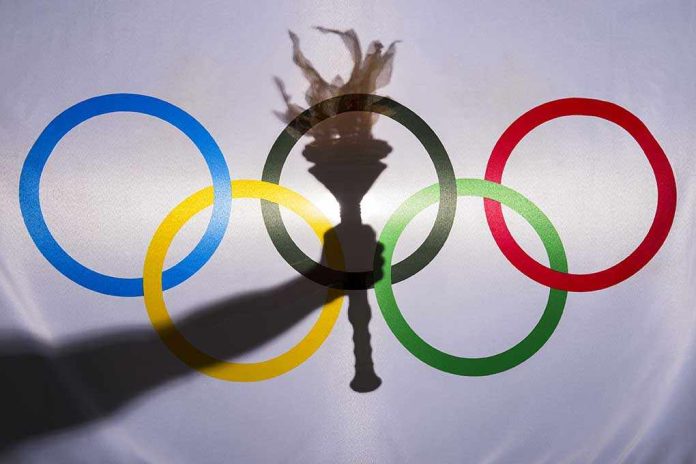
New IOC President Kirsty Coventry promises to “protect the female category” with unanimous support to ban transgender women from Olympic competition, challenging years of progressive policies that have cost nearly 900 biological females their rightful podium placements.
Key Takeaways
- Kirsty Coventry, the first female and African IOC President, has announced plans to take control of gender eligibility criteria previously managed by individual sports federations.
- The IOC will establish a scientific working group to develop consistent policies across Olympic sports, potentially modeled after World Athletics’ ban on transgender athletes who have undergone male puberty.
- A UN study revealed nearly 900 biological females have missed medal opportunities when competing against transgender athletes across 29 sports.
- Any policy changes will apply to future competitions only and will not retroactively affect past Olympic results.
- The initiative marks a significant shift from the IOC’s previous stance of deferring transgender eligibility decisions to individual sports federations.
Historic Leadership Takes Bold Stand for Women’s Sports
In a landmark move that signals a dramatic shift in Olympic policy, newly appointed International Olympic Committee President Kirsty Coventry has announced plans to centralize control over transgender athlete eligibility. This decision overturns the IOC’s previous approach of allowing individual international federations to set their own standards. Coventry, making history as both the first woman and first African to lead the IOC, has received overwhelming support from committee members to prioritize fairness in women’s competitions.
“We understand that there’ll be differences depending on the sport … but it was very clear from the members that we have to protect the female category, first and foremost to ensure fairness,” said Kirsty Coventry, IOC President.
The new approach represents a direct response to growing concerns about biological males competing in women’s events. After the controversial situations at the 2024 Paris Olympics, particularly in boxing, Coventry’s administration appears determined to establish clear, science-based guidelines that maintain competitive integrity. The IOC’s shift acknowledges mounting evidence that biological differences create insurmountable advantages that testosterone suppression cannot fully mitigate.
Scientific Working Group to Develop Unified Standards
At her inaugural press conference, Coventry announced plans to “set up a working group made up of experts and international federations” to develop comprehensive standards for transgender participation in Olympic events. This approach marks a significant departure from the IOC’s previous framework, which offered only general guidance while allowing individual sports to implement their own policies. The resulting patchwork of rules created inconsistencies across different Olympic disciplines.
“It was agreed by the members that the IOC should take a leading role in this and that we should be the ones to bring together the experts, bring together the international federations and ensure that we find consensus,” said Kirsty Coventry, IOC President.
The working group is expected to examine policies already implemented by organizations like World Athletics, which has banned transgender women who have undergone male puberty from competing in women’s track and field events. This science-based approach acknowledges the physical advantages conferred during male development that cannot be eliminated through hormone therapy. Coventry emphasized that while the IOC will develop overarching principles, specific applications may vary based on the unique requirements of different sports.
Alarming Data Confirms Impact on Women Athletes
Coventry’s policy shift is supported by troubling statistics from a United Nations study that quantified the impact of transgender inclusion policies on biological women athletes. The report revealed that over 600 female athletes across 29 sports have lost more than 890 medal opportunities when competing against biological males. These numbers provide concrete evidence of the competitive disadvantages women face when gender identity policies override biological reality in sports.
“But we need to do that with a scientific approach and the inclusion of the international federations who have already done a lot of work in this area,” said Kirsty Coventry, IOC President.
Despite the clear direction toward protecting women’s sports, Coventry confirmed that any policy changes will not be applied retroactively. “We’re not going to be doing anything retrospectively. We’re going to be looking forward,” she stated, indicating that results from previous Olympic competitions, including the recent Paris Games, will remain unchanged. This forward-looking approach aims to establish clear standards for future competitions while avoiding the complexity of revisiting past results.
Conservative Victory in Cultural Battleground
The IOC’s policy shift represents a significant win for conservatives who have long advocated for protecting women’s sports from policies that prioritize gender identity over biological reality. For years, many female athletes have voiced concerns about competing against biological males but faced accusations of bigotry or exclusion. Coventry’s approach acknowledges the scientific realities that govern athletic performance while focusing on competitive fairness as the paramount consideration in Olympic sports.
“We’re going to be looking forward to it. From the members [it] was ‘What are we learning from the past, and how are we going to leverage that and move that forward to the future?,” said Kirsty Coventry, IOC President.
This development comes as numerous states and sports organizations worldwide have implemented similar protections for women’s athletics. The IOC’s leadership position in global sports means this policy shift could influence standards well beyond Olympic competition, potentially extending to collegiate, professional, and youth sports. While progressive activists may criticize the move as exclusionary, the overwhelming support from IOC members suggests a growing consensus that biological differences matter fundamentally in athletic competition.





